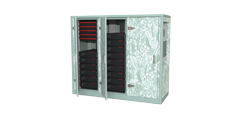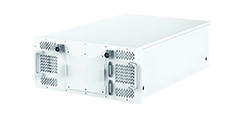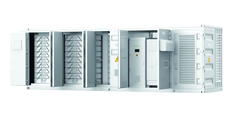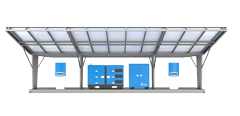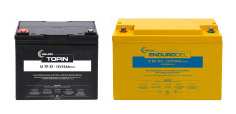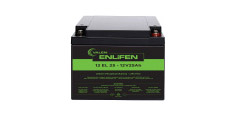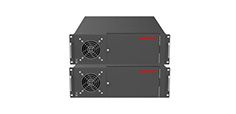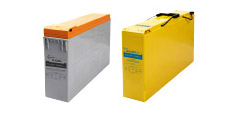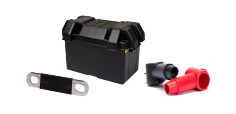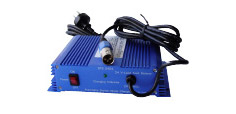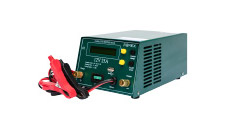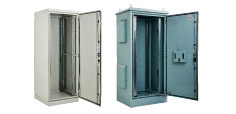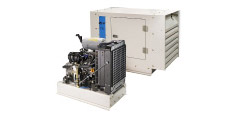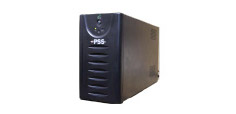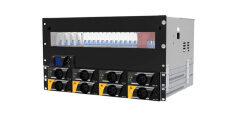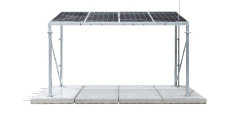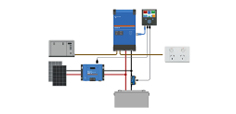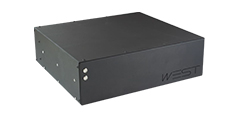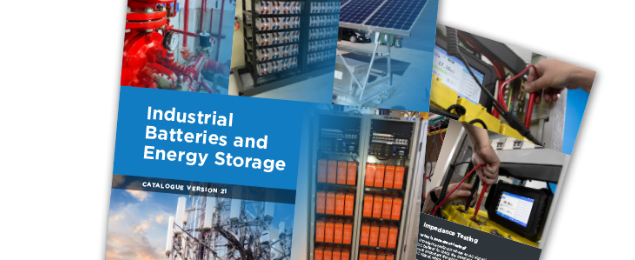Benefits of using Lithium Iron Phosphate Batteries for Remote Comms.
In this blog, we’ll be looking at the Benefits of Lithium Batteries in communications, specifically Lithium Iron Phosphate batteries (LiFEPO4), when it comes to power backup at remote communications sites.
A common issue for those working on mission-critical, remote communications projects is choosing the right battery technology to ensure Service Level Agreements (SLA’s) are met across different sites.
Guaranteeing uptime and arranging maintenance can be particularly difficult for solar-powered remote locations.
Thankfully, Lithium batteries have emerged as revolutionary battery technology, promising low maintenance and superior performance. But not all Lithium batteries are the same.
There are many types of batteries with unique Lithium-based chemistries, and each has its advantages and disadvantages for different applications.
High Operation Temperatures in Remote Comms
The worst time for a power failure is during extreme heat conditions, such as in a bushfire or heatwave.
Ensuring efficient energy usage is critical at a solar-powered remote location. You can save on precious solar charge from your solar system by saving on AC usage.
Thanks to the continued advancement of Lithium technology, Lithium Iron Phosphate (LiFEPO4) batteries have incredibly high operating temperatures. A premium Lithium battery can withstand temperatures of up to 60°C, whereas your standard Lead Acid batteries can have operating temperatures of 20°C to 25°C.
With a Lithium battery, having to rely on cooling measures is one less thing for you to worry about.
Lithium Batteries Offer High Reliability
Lithium Iron Phosphate batteries are trusted throughout the communications industry. The technology is proven and has been tried and tested to withstand Australia’s extreme climate conditions.
Lithium batteries are known for being less forgiving when it comes to being equally charged and discharged. Most premium Lithium Iron Phosphate batteries, such as the Valen ENLiFEN range, will contain an in-built Battery Management System (BMS) for greater reliability. Reliability is particularly important when it comes to remote sites.
A BMS ensures each battery cell is balanced during charge and discharge as well as ensuring the cell is not over-discharged. Without one, a Lithium battery can be at risk of cell damage and potential failure.
The BMS also contributes significantly to a longer battery life, which means reduced maintenance and replacement costs.
Remember when the ‘hoverboards’ caught on fire a few years ago? That was because the boards ran off cheap Lithium batteries without a BMS.
So, to ensure your communication site stays online, it’s not worth it to cut corners and costs by using an inferior Lithium battery.
Lithium Batteries Energy Density
A common outcome that needs to be achieved at a communications site is the highest possible output from the smallest possible physical area.
Communications providers are continually pushing for greater run times and higher SLA’s. This can be a challenge for solar-powered sites in particular. Technicians may be faced with having to guarantee up to 7 days of autonomy (operational capability) when the sun isn’t shining.
Lithium Iron Phosphate batteries have higher energy density for their size, smaller weight and will take up a smaller physical footprint compared to Lead Acid batteries. Lithium batteries can be up to 50% lighter than Lead Acid batteries.
With less space being taken up by battery racking, you have more room to add additional equipment (such as transmitters) as your needs grow without a significant re-configuration. This saves on additional infrastructure costs and the potential hassle of renegotiating land leases.
Redundancy
If option 1 fails, you need a fail-proof option 2.
A modular system – such as the Valen ENLiFEN Energy Storage Optimiser (ESO) – using Lithium Iron Phosphate batteries is the most efficient and effective way to achieve redundancy for a remote communications site.
Using a ‘Master and Slave’ setup, if one module fails, other modules can take over to keep the system running until proper maintenance can be carried out.
Having the energy storage system made from modules in parallel, not only do you receive greater redundancy, but your building blocks can all uphold the system in times of need.
Remote monitoring can also be achieved within a modular system, so you know the operational status of the communications site from your control centre.
Not sure which battery is right for your project? Just ask us!
We are proud to offer our communications clients technical support from experts of the highest calibre so that you know in times of panic; you always have help at hand.
For more help and advice, talk to one of our friendly technical experts. Click here to contact us.

